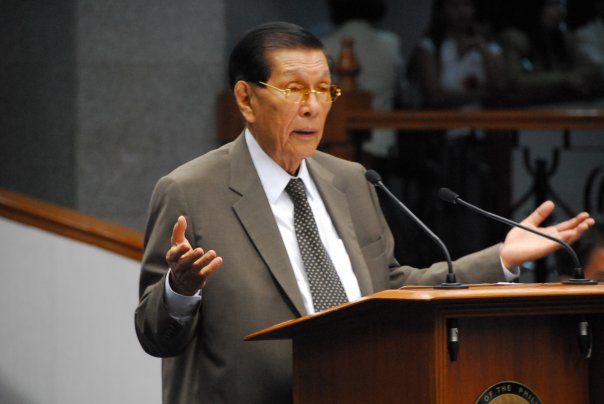Headline
High Court junks Enrile’s petition to stop suspension
MANILA — The Supreme Court (SC) En Banc on Tuesday dismissed the petition of Senator Juan Ponce Enrile seeking to stop his preventive suspension as Senator of the Republic.
In a press conference, SC Public Information Office (PIO) chief and spokesman Atty. Theodore O. Te said that “the Court DENIED the Petition for Certiorari and Prohibition with prayers for injunctive or status quo ante relief challenging the Sandiganbayan’s orders to preventively suspend Senator Enrile on the ground that it was moot and academic due to supervening events.”
“The Court noted that as of December 1, 2014, Senator Enrile’s preventive suspension had already been served and lifted, as a result, the Sandiganbayan’s orders to this effect are already functus oficio (served its purpose).” Te added.
Likewise, the SC decided on Tuesday to rule in their summer session in Baguio City the petition for certiorari filed by Enrile for his bail and the petition for certiorari on the denial of the Sandiganbayan of his plea for “bill of particulars.”
The SC will agenda its case on April 21, 2015 in Baguio City on the chances of Enrile to be a freeman or not.
Enrile asked the SC to stop the Sandiganbayan from proceeding with the trial of the plunder and graft charges filed against him for his alleged involvement in the PHP10-billion pork barrel fund scam.
In his 73-page petition for certiorari, Enrile through his lawyer Estelito Mendoza, asked the SC to issue a temporary restraining order (TRO) or a writ of preliminary injunction which would stop the Sandiganbayan from proceeding with his case.
Enrile elevated his case before the SC against the Sandiganbayan Third Division for committing grave abuse of discretion amounting to lack or excess of jurisdiction.
He also asked the SC to expedite the resolution of his petition and to set the same for oral arguments.
Enrile particularly asked the SC to dismiss the July 11, 2014 resolution issued by the Sandiganbayan Third Division which denied his motion for bill of particulars.
He cited Section 9, Rule 116 of the Rules of Court wherein it states that “the accused may, before arraignment, move for a bill of particulars to enable him properly to plead and prepare for trial.”






















